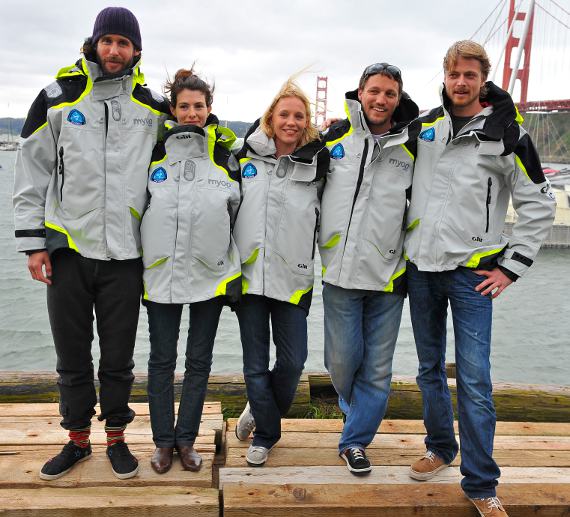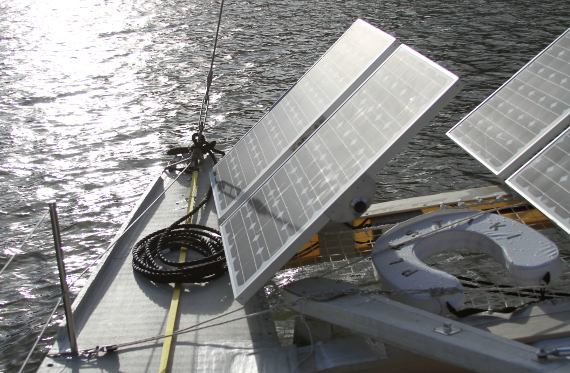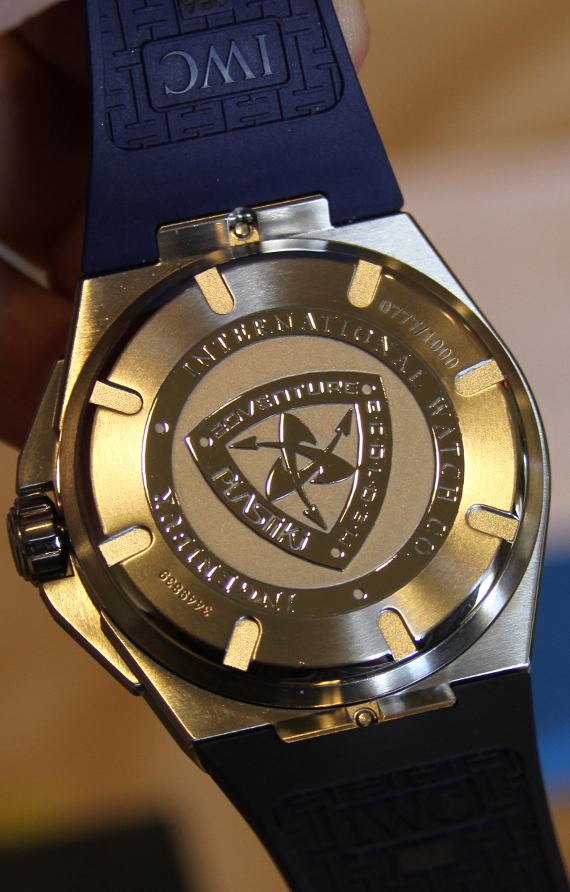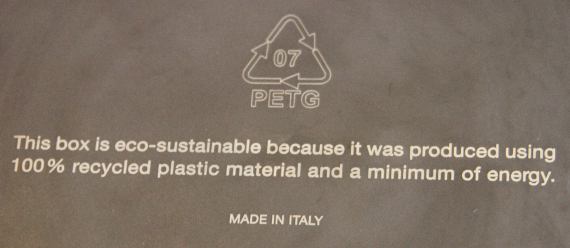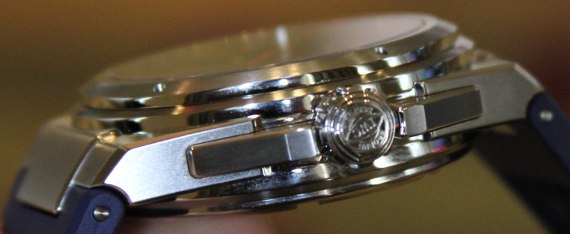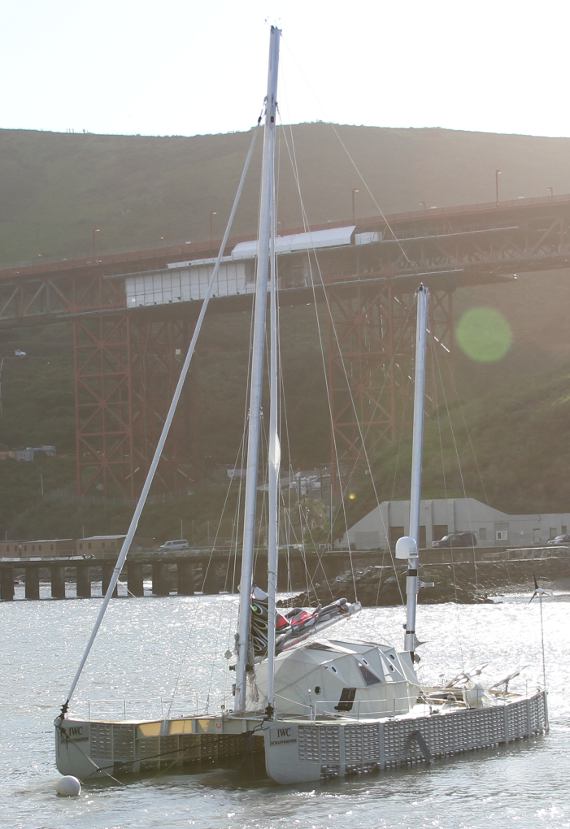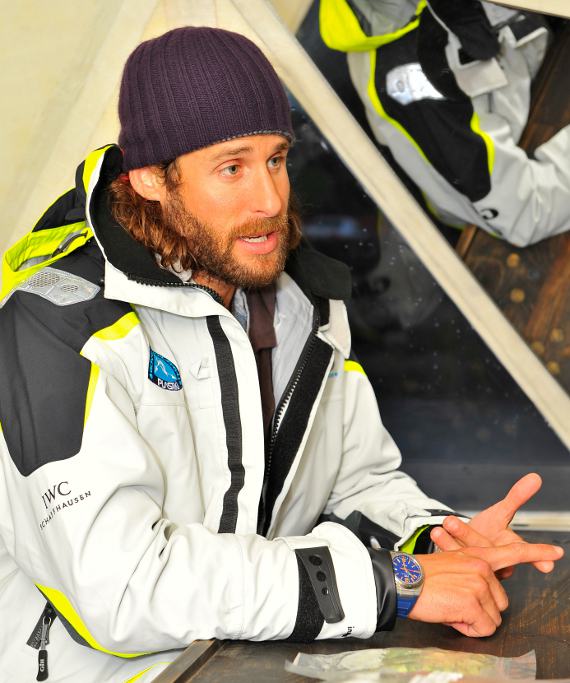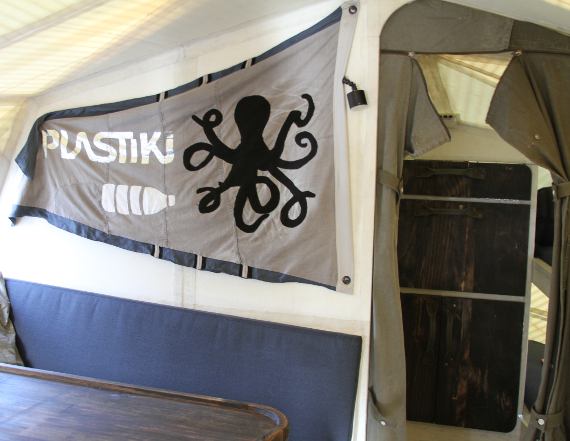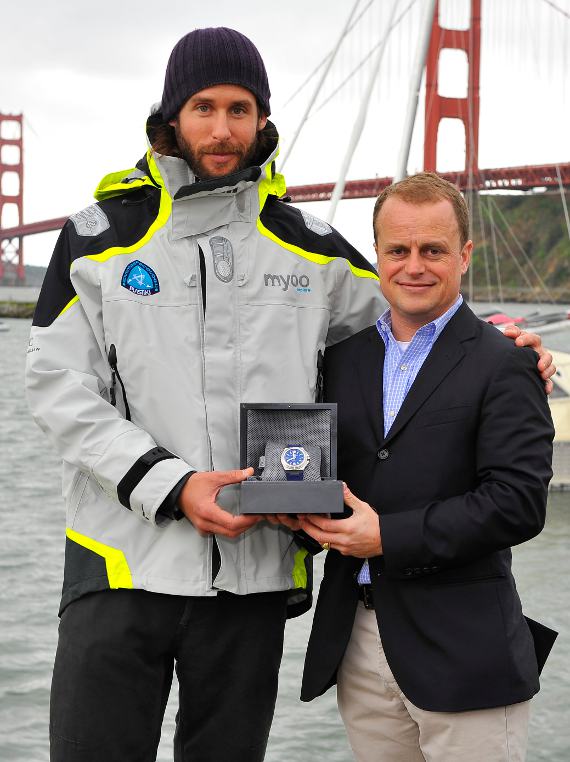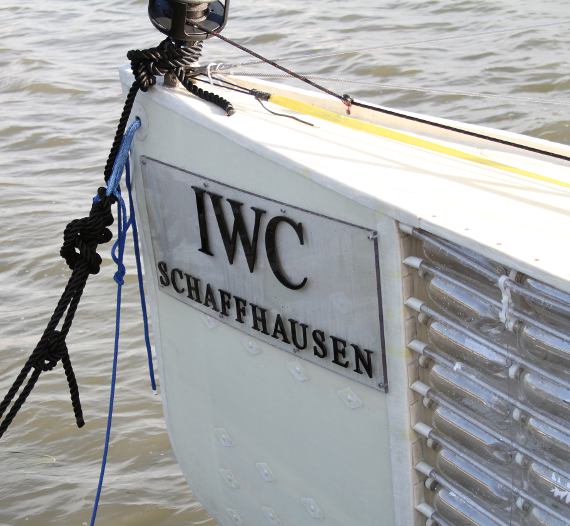
The wind speed was brutal. It was almost unfair. I was out in what felt like a gale for literally seconds before my expensive European umbrella was trashed and I was soaked. The wind warped it like aluminum foil in front of my eyes like it was a sick marionette puppet performance. In the past I had trusted its apparent durability to the elements with much confidence. In one fell swoop the elements decided to test its limits with a result that would satisfy a giggling teenager.
The pathetic thing was that I wasn’t doing anything exotic. I merely exited my car in Sausalito near a marina across from San Francisco. The wind was viciously quick that day. I had driven over on invitation from IWC to witness the Plastiki. A boat that they are a major sponsor of, and have released a limited edition set of their popular Ingenieur watches for. While I was being bullied by the elements, my view (through the rain), was the completed 60 foot catamaran style boat made mostly out of reused, or recycled plastic bottles – the same type millions of people each day drink soda out of. It looked more impressive in person than in the small cartoonish images I had seen it before as. 12,500 bottles and about four years after the journey to build it started, it was ready for its maiden voyage. The point of the thing? To be a sound vessel both ecologically and functionally.
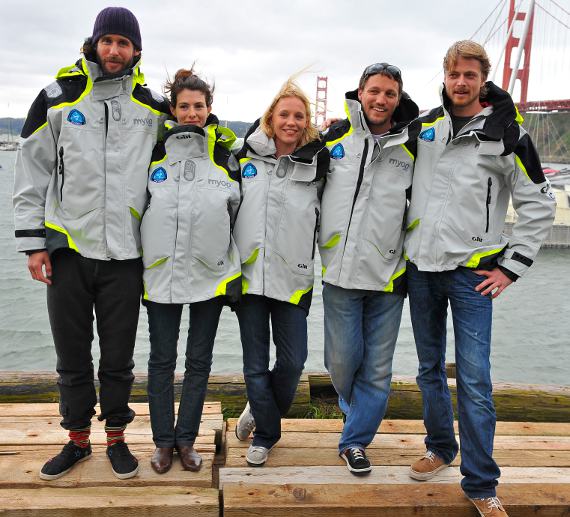
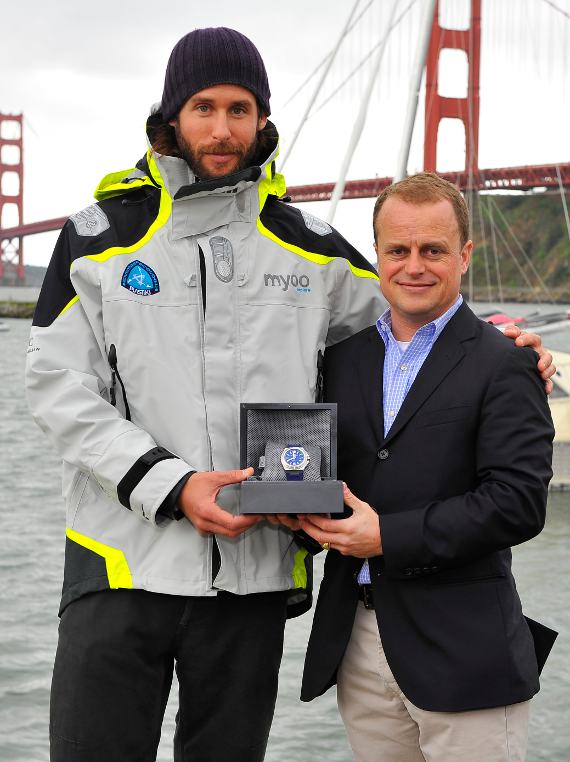
For most of our history we have been building boats. The eons of experience have allowed us to realize that the sea is an incredibly unforgiving place. Just making a boat worthy of an ocean voyage far away from shore is tough. It is tempting to use the best and most capable materials that are available. So what do you do if you want a cross-continent traveling green ship? Four years of R&D apparently. IWC is a patient sponsor. The Plastiki was pretty far behind schedule. It needed reevaluation a few times, but the finished result was promising. Like all good experiments, the project resulted in a new use for used plastic bottles. Through some basic processing, they can be turned into a fiberglass like material that is very hard (at least as strong as fiberglass as I understand), workable, and a bit flexible as well. Most of the Plastiki is built out of the stuff. The hand-done job makes the ship feel like a polished craftsman project. A lot like concept watches make totally by hand.
I am no boat expert, but I was certainly impressed by what I was exploring. The boat isn’t big, but is still meant to carry a six member crew from San Francisco to Sydney. The trip won’t be a race, but the journey is due to take about 4 months. The entire time the Plastiki will be generating its own power, and use almost all recycled and earth friendly elements. Not in any BS corporate marketing manner, but as done by serious Earth lovers who intend the project to make a serious point about ecological preservation and the changes our planet is actively going through, despite what political pundits suggest spewing rhetoric from the frame of reference of their manicured gated communities.
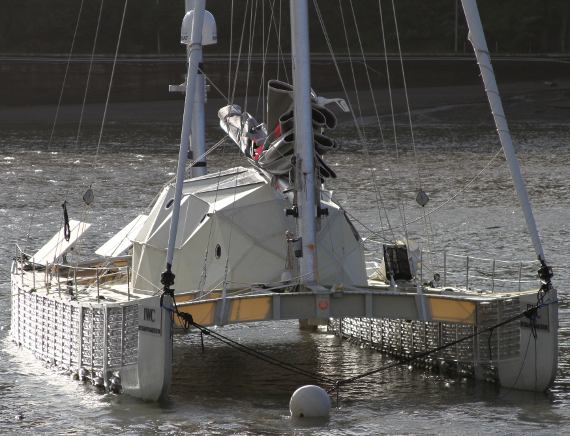
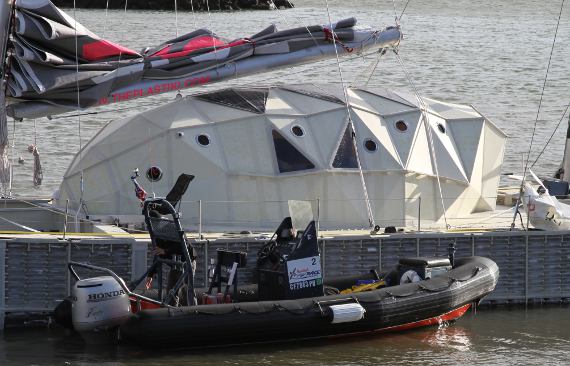
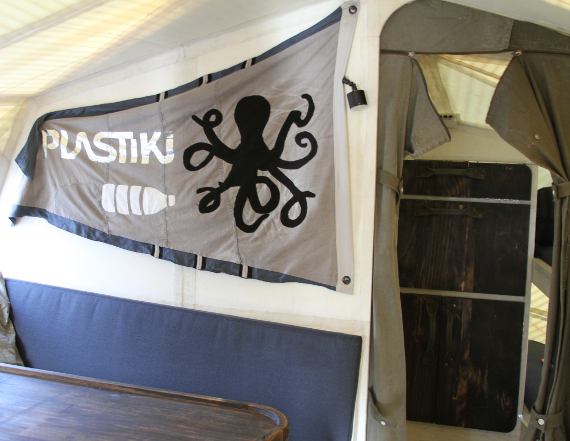
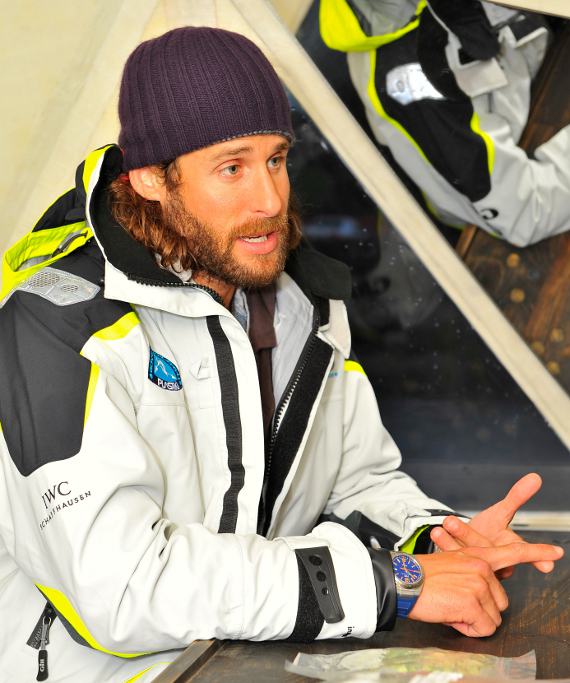
While in journey, the Plastiki will upload data to the internet of the surrounding environment. The crew itself is due to blog and even provide some video updates. Getting enough power for this will involve hand positioning solar panels and time spent on an electricity-generating bicycle-style device on the deck. Actually, power savings have never been quite as cool. The ship has instruments that give you real time data on exactly how much power you are using versus generating. It really helps you appreciate how efficient or inefficient you are being. Image how much “better” we would be if we had real-time stats on our global footprint on a second-by-second basis in our daily lives.
The many dedicated people behind the project involve a company called Adventure Ecology and some highly dedicated sponsors. I don’t know if it is their sincere desire to work with positive projects that emphasize the values of the brand, or the charisma of project leader and Adventure Ecology founder David de Rothschild — but we are fortunate that projects like this get funded. Mr. de Rothschild has some laurels on his sleeve and past projects with the famous Swiss watch brand. He has climbed high and traveled to the coldest places on the Earth, and now his green message is taking to the seas. As you might expect, David is a character. Tall and slightly Jesus-like in appearance, he is well articulated in the details behind his projects. We spoke a bit about the details of the boat that floats via specially inflated 2 liter cola bottles, and he humored my more practical questions. What will you eat? Who will save you if the boat’s organic cashew nut glue decides it tastes good to sharks? Will anyone be following you? It is true that the vessel is experimental, but the people behind the project are well-seasoned and have thought in great detail about the journey. If sharks eat the boat (highly unlikely), they will not be followed by any ships, but will need to rely on their satellite phone for help who hopefully is only a day or two away. Oh, and the head on the ship makes an airplane lavatory feel luxurious.
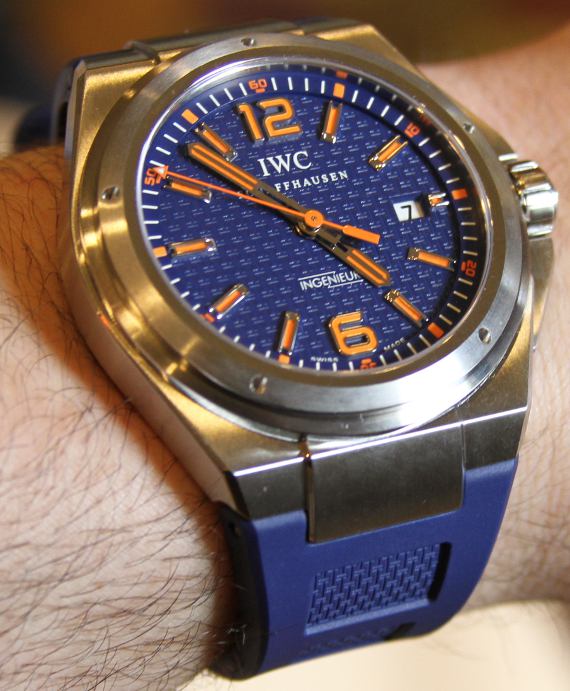
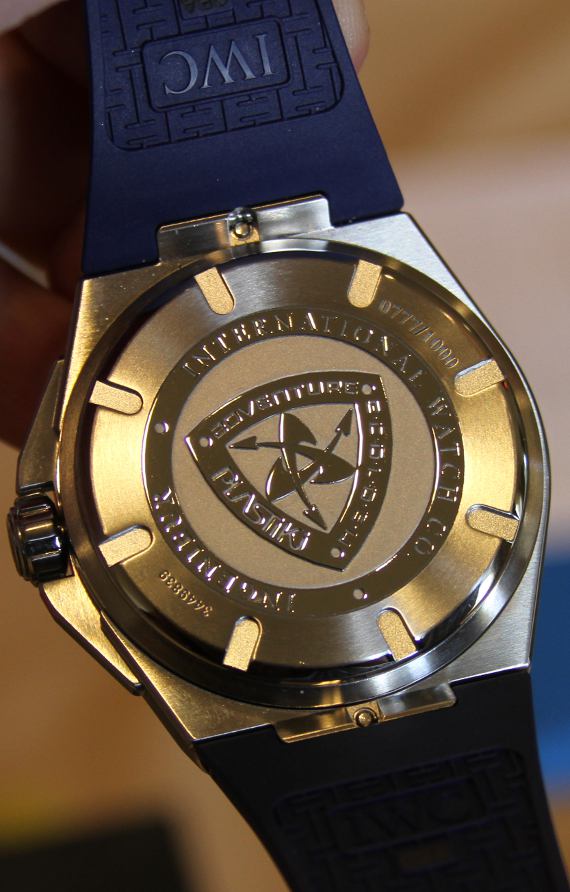
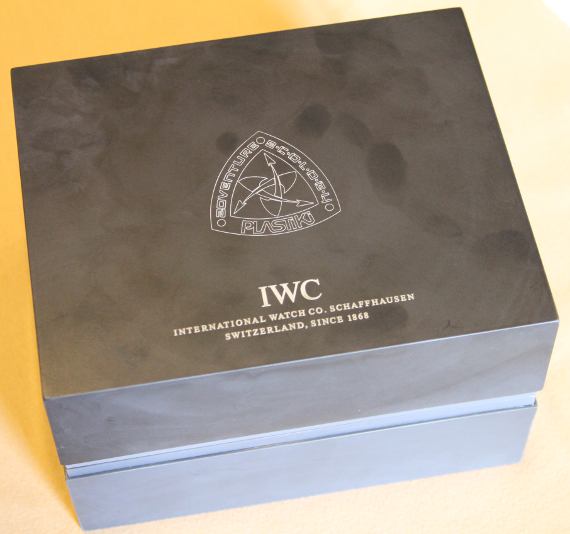
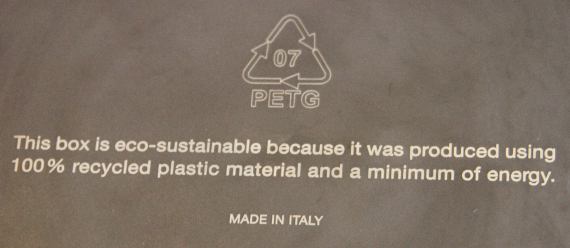
While the boat has already proven a manufacturing success, the journey is really a symbolic denouement to the Plastiki’s birth. Proof that the concept works, and a way for David to enjoy the type of lifestyle he gravitates towards for at least another several months. The cheeky name of the Plastiki is in honor of the Kon-Tiki and its voyage from 1947 — Google that or David (as well as Adventure Ecology) for more information on them.
I mentioned my now deceased umbrella for a reason — rather than to merely lament its inglorious demise. It allowed me to appreciate the benefit of a tool meant to last. Sure the umbrella performed amicably most of the time, but it just took one unexpected instance for it to fail me, and leave me less than dry. What will happen to David out in the sea if his tools fail him? Even if they are suitable for 98% of all occurrences, that still leaves open dangerous contingencies. I am starting to understand why IWC likes to test themselves by partnering with such “perfect examples.” The special, limited edition of 1000 pieces IWC Ingenieur Automatic Mission Earth Edition Adventure Ecology watches will be worn by the crew and will stand up to anything that the Plastiki crew faces. IWC has yet another chance to prove the rugged reliability (and in my opinion dashing good looks) of its Ingenieur watches. Facts and figures on paper, as well as clean looking marketing photo’s don’t communicate this point. Only action can do that. Aside from some cosmetic changes and a specially made and engraved caseback, the blue and orange watch is the Ingenieur that anyone can get. David was proudly wearing his the entire time. A watch guy like me, I appreciated his ability to point out some of the finer details of the watch and how it would help him on the voyage. He also adeptly summed up the piece by emphatically pointing out, “and it is just really cool.” The colorful design looked appropriate with his unique wardrobe that included colorful socks that he tucked his pant legs into. I appreciated that both he and I in our own unique ways are unapologetic eccentrics.
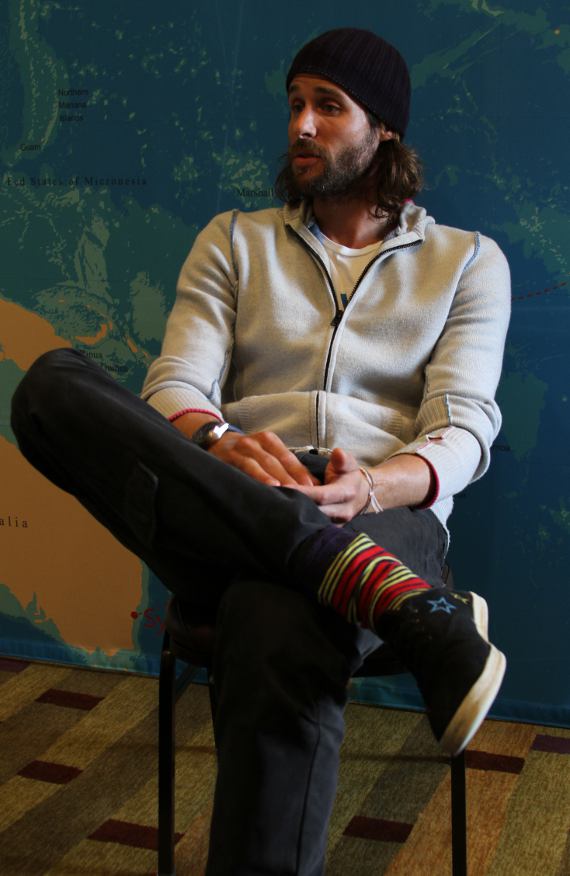

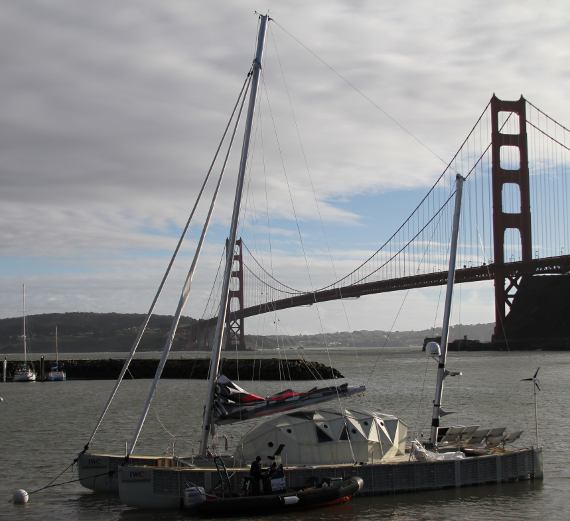
Buying one of the Mission Earth Edition Adventure Ecology watches gets you a special watch case as well. It is made from the same recycled srPET plastic bottle material that the Plaskiti is mostly made from. The high grade rubber strap is ultra comfortable, and the bright colors feel light-hearted and fun — another Ingenieur personality in a range of pieces. The steel cased watch is water resistant to 1,200 meters, is antimagnetic, highly shock absorbent, and contains the IWC in-house made automatic caliber 80110 movement. There are scant other high performance and cool looking high-end watches out there dedicated to the active environmentalist movement. Plus, after spending some time playing with the very easy to use and read design, I am sold on the Ingenieur watch line in general.
Intentionally or not, IWC keeps allowing me time with their collection, confident that the inherent merits of their watches will attract me. The biggest thing holding most people back from not being watch lovers is simply lack of an opportunity to develop into watch lovers through experience and education.
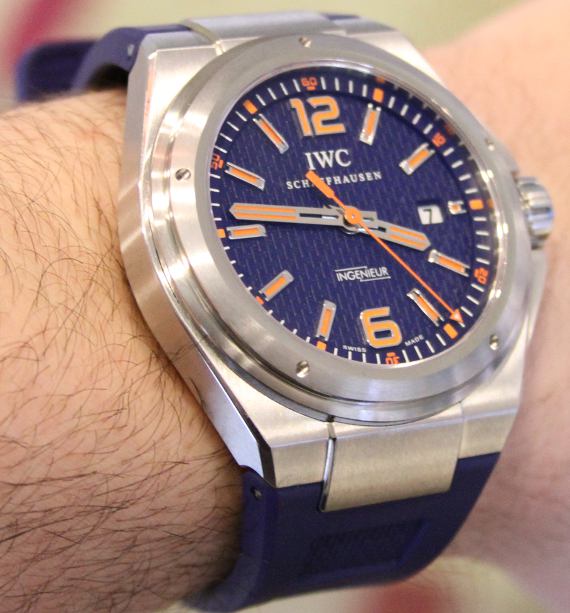
At the same time I understand the need for the right tool for the job. The crew of the Plastiki doesn’t wear watches to satisfy their sponsor. They have need for high quality, reliable watches on a daily basis. IWC provides them with nice-looking, well-working pieces which are more than suitable for the job. Intentional overkill is what I want in my watches and tools. The ability to survive much more than I could imagine throwing at them — with a grace you want from something you regularly use.
Near the time you will be reading this the Plastiki will set sail. Literally, without the wind the crew is stuck on board playing cards, and generating enough juice to surf the Internet a bit via their satellite connection. You can log-on yourself to the Plastiki website (theplastiki.com) for journey updates, more information about the crew, and to learn more about Adventure Ecology. For more details on the limited edition Adventure Ecology watch or getting one, contact IWC, or your nearest IWC dealer.




